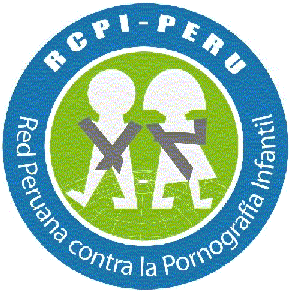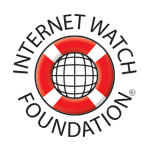Rules guidelines for Internet safety
Important rules
2) Teach them to avoid all personal identifiers and avoid postings about parties, events, or activities where a stranger could find them. Screen names should be gender neutral.
(In January of 2005 in Lafayette, Louisiana, a 16-year-old girl was attacked by a 37-year-old man who read her profile on a popular social networking site and tracked her down at her after-school job).
3) Pay Attention to Online Photos: Know the type of photos your child is posting online. It is wisest to encourage your child not to post any photos online. Children use various forms of technology to post information and photos online, such as videos and web cams. Photos from camera phones can also be uploaded. Parents and guardians should be aware of the imagery their children post on the Web--these images may pose a risk to their children, exposing them to online predators and people they don't know. Even innocent photos can attract a predator. Check with your child's school to see if students' projects, artwork, or photos are being put on school websites. Schools need to be reminded of the risk and encouraged to allow access to student activities posted on the school's website by password only or posted on the school's Intranet. Webcams should only be used under close parental supervision and sent only to trusted friends and family.
Even innocent pictures of school activity on a school Web site have attracted the attention of one predator who became obsessed and kidnapped a child from his school (Burkey, Martin. "Martin Says Child Exploitation is 'Epidemic'." The Decatur Daily News 23 May 2006).
4) Supervise Computer Use: Keep your child's computer in an open area of your home and find out what other computers and Internet-enabled mobile devices (cell phones and PDA's) children may be using outside of the home. Placing the computer in an area, such as the kitchen or family room, gives parents and guardians the ability to supervise a child's online navigation.
30% of parents allow their teenagers to use the computer in private areas of the house such as a bedroom or a home office. Parents say they are more vigilant about where their teen(s) go online if the computer is in a public area of the household (Ketchum Global Research Network. Parents' Internet Monitoring Study. National Center for Missing & Exploited Children and Cox Communications, 2005).
65% of all parents and 64% of all teens say that teens do things online that they wouldn't want their parents to know about (Family, Friends & Community: Protecting Teens Online, Amanda Lenhart. March 17, 2005. Pew Internet & American Life Project. December 12, 2005).
Almost one in eight youth ages 8-18 discovered that someone they were communicating with online was an adult pretending to be much younger (Internet safety: Realistic Strategies & Messages for Kids Taking More and More Risks Online. December 21, 2005. Polly Klaas Foundation. February 17, 2006)
7) Instruct your child never to plan a face-to-face meeting. Children should also be advised to come to you if anyone makes them feel scared, uncomfortable, or confused or suggests meeting them.
One-third of youth ages 8-18 have talked about meeting someone they have only met through the Internet (Omnibuzz.Research. Nationwide Poll of Teens and Tweens. Polly Klaas Foundation, December 21, 2005).
8) Talk to your children about chat rooms. Recognize that chat rooms are the playground of today's sexual predator. EIE strongly urges parents to disallow chat rooms because it's impossible for a parent, child, or technology tool to recognize a disguised predator.
30% of teenage girls polled by the Girl Scout Research Institute said they had been sexually harassed in a chat room. Only 7% told their parent because they were worried that their parents would ban them from going online (Girl Scout Research Institute. The Net Effect: Girls and New Media. 2002).
9) Limit your child's Instant Messaging to a parental or guardian-approved buddy list. Regularly check your child's buddy list to ensure that it has not been altered.
42% of parents do not review the content of what their teenager(s) read and/or type in chat rooms or via instant messaging (Ketchum Global Research Network. Parents' Internet Monitoring Study. National Center for Missing & Exploited Children and Cox Communications, 2005).
23% of youth reported being "very" or "extremely upset" by exposures to sexual material (The Victimization of Children: Emerging Issues. Ed. J.L. Mullings, J.W. Marquart, and D.J. Hartley. New York: Haworth Maltreatment &Trauma Press, 2003).
11) Establish online rules (see Youth Internet Safety Contract) and an agreement with your child about Internet use at home and outside of the home (i.e., at a friend's house, at school, at the library, etc.).
77% of parents do not have rules about what their kids can do on the computer, such as restricting the amount of time their kids spend on the computer (Generation M: Media in the Lives of 8-18 Year-Olds. Kaiser Family Foundation Study, March 2005).
12) Virtual Parenting: Set-up the family's Internet service accounts. Parents should take an active role in setting up Internet service accounts, including any online community services children may join. Parents should regularly monitor accounts to supervise online friends, chat areas and blogs. It is safest to block all chat rooms and limit instant messaging to a parent-approved buddy list.
13) Think Like the Child: Search blog sites children visit to see what information they are posting. To ensure that children are not engaging in risky online behavior, we recommend that parents and guardians do a simple online search. Parents and guardians can type in their child's name, nickname, school, hobbies, grade, or residence to determine information availability. Supervise blogs and be aware of not only what your child is posting, but what other kids are posting about your child.
14) Report any content or activity that you suspect as illegal or criminal to local law enforcement and to the Peruvian Net against Child Pornography at denuncias@red.org.pe














































1 Comments:
At 10:59 AM , Anonymous said...
Anonymous said...
Thanks for this helpful post. I am very interested in how parents take responsibility for how their children use the Internet. I'd love to hear your comments on my posts about Internet safety:
1. Safety Tips for Parents: http://www.covenanteyes.com/blog/2008/03/25/a-parents-guide-to-internet-safety-for-children/
2. Online Predators: http://www.covenanteyes.com/blog/2008/04/03/protecting-kids-online-the-myths-and-realities-of-online-predators/
3. Cyberbullying: http://www.covenanteyes.com/blog/2008/04/07/cyberbullying-the-new-playground/
Post a Comment
Subscribe to Post Comments [Atom]
<< Home